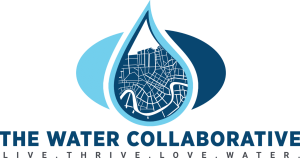Meet Our Environmental Justice Grantee Partners
Feb 18, 2021 8:00:00 AM • Written by: Bethany Maki
I can’t think of a better way to start my work as Progressive Multiplier’s managing director than by welcoming five amazing grantee partners to our inaugural Environmental Justice Cohort. This cohort was supposed to be our primary focus in spring 2020 when we were planning it back at the end of 2019. 2020, as we all know, had other plans.
The Progressive Multiplier team’s March 5th trip to our founding EJ funder partner’s office to kick off this program was the last any of us would take in 2020. Just two short weeks later, we had pivoted our attention to respond to the revenue crisis facing the nonprofit sector because of the COVID-19 pandemic. Over the past year we’ve had the privilege of working with all of our grantee partners, including the first wave of recipients of Progressive Stimulus Project grants, to evolve or launch their grant projects to meet the challenges and opportunities of fundraising through a pandemic and uprising for racial justice.
As that constant fundraising strategy evolution became our normal by early summer, we were able to refocus on preparing to build the EJ cohort, researching common revenue generation needs among groups. The JPB Foundation focuses its environment grant making in low-income communities and underserved communities of color. These communities have borne a disproportionate burden from environmental injustice and racism, and the frontline environmental justice organizations working to address these problems have suffered chronic disinvestment. Through its partnership with The JPB Foundation, Progressive Multiplier aims to build financial strength across the environmental justice movement by investing in groups’ testing, replicating, innovating and scaling mass market revenue generation techniques to accelerate the growth of unrestricted, flexible funds available to them.
The following organizations are testing revenue generation techniques that, once proven and distributed, have the potential to make a real impact on the sustainability of the environmental justice movement. We congratulate these groups in their creativity, rigor and drive to scale their independent revenue and share their learnings with the sector.
 Climate Justice Alliance: CJA is working on a lead generation to donor conversion project that aims to grow their email audience and cultivate them into EJ activists and small dollar donors helping frontline communities build the regenerative economy.
Climate Justice Alliance: CJA is working on a lead generation to donor conversion project that aims to grow their email audience and cultivate them into EJ activists and small dollar donors helping frontline communities build the regenerative economy.
 Kentuckians for the Commonwealth: KFTC wants to continue to shift the narrative about what’s possible in Kentucky, and through this grant project, test into what types of messages inspire people to see themselves in the work and to actually take action through advocacy and small dollar donations.
Kentuckians for the Commonwealth: KFTC wants to continue to shift the narrative about what’s possible in Kentucky, and through this grant project, test into what types of messages inspire people to see themselves in the work and to actually take action through advocacy and small dollar donations.
Power Shift Network: Through quarterly prospecting events, PSN will build a large major and mid-major donor program. The group will be testing different follow up communication tactics and offers to its potential donors, defining what yields the most revenue to support mobilizing the collective power of young people to mitigate climate change and create a just, clean energy future.
 US Climate Action Network: USCAN has launched Arm in Arm, a peer-to-peer fundraising program that couples grassroots activism and revenue generation, to ignite a transformational era that ends the climate crisis by centering economic and racial justice.
US Climate Action Network: USCAN has launched Arm in Arm, a peer-to-peer fundraising program that couples grassroots activism and revenue generation, to ignite a transformational era that ends the climate crisis by centering economic and racial justice.
 The Water Collaborative of Greater New Orleans: TWC is launching Water and Climate Tours, dedicated to the historical and future relationship New Orleans and Southeast Louisiana has with water, climate, and the built environment, and how it shapes the city’s culture, traditions, and attitudes. The education should bring a focus on equitable practices to sustainably live and thrive in this and other coastal communities effected by environmental injustice.
The Water Collaborative of Greater New Orleans: TWC is launching Water and Climate Tours, dedicated to the historical and future relationship New Orleans and Southeast Louisiana has with water, climate, and the built environment, and how it shapes the city’s culture, traditions, and attitudes. The education should bring a focus on equitable practices to sustainably live and thrive in this and other coastal communities effected by environmental injustice.
.png?width=300&height=89&name=Progressive%20Multiplier_Logo_RGB%20(3).png)
